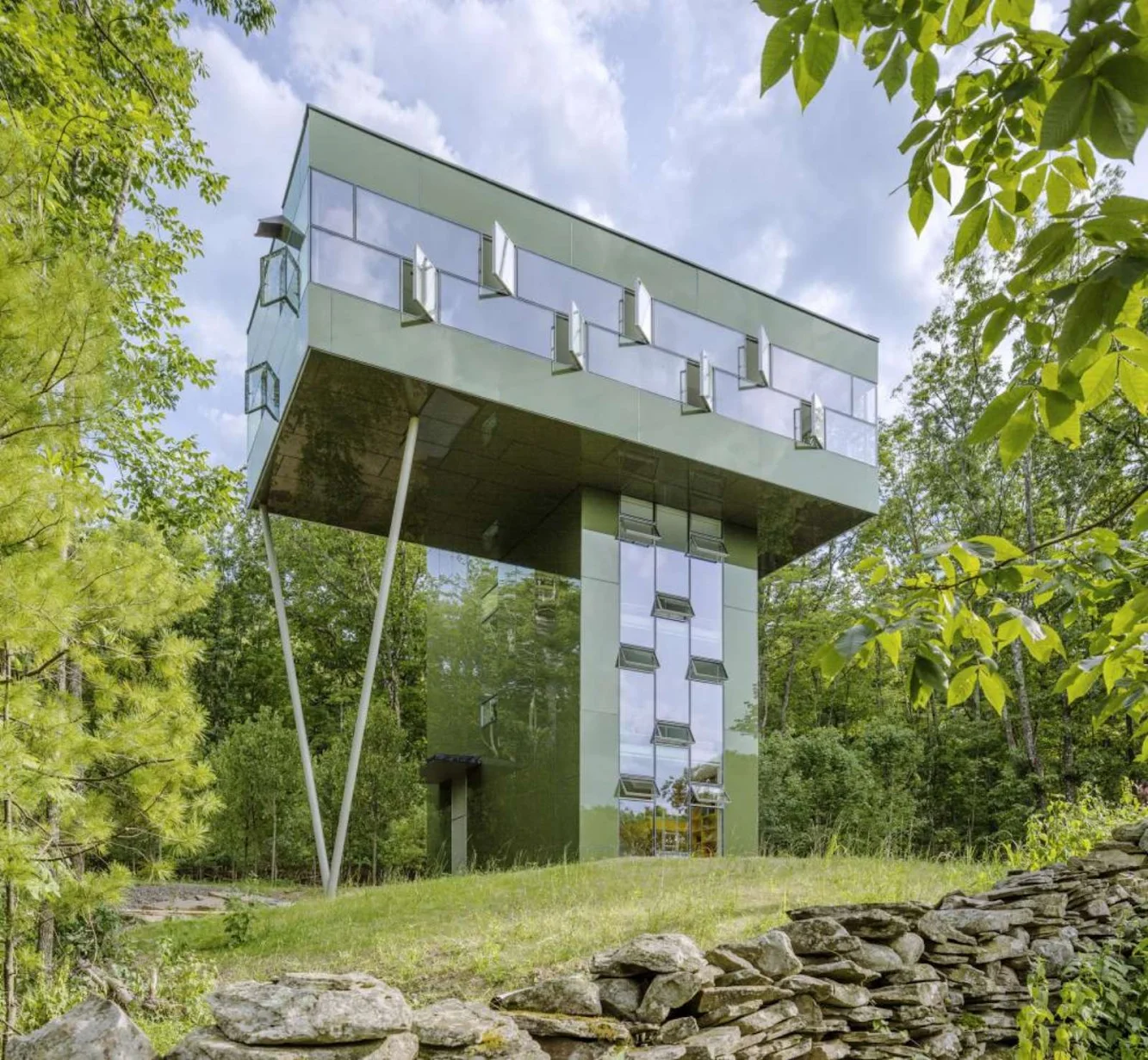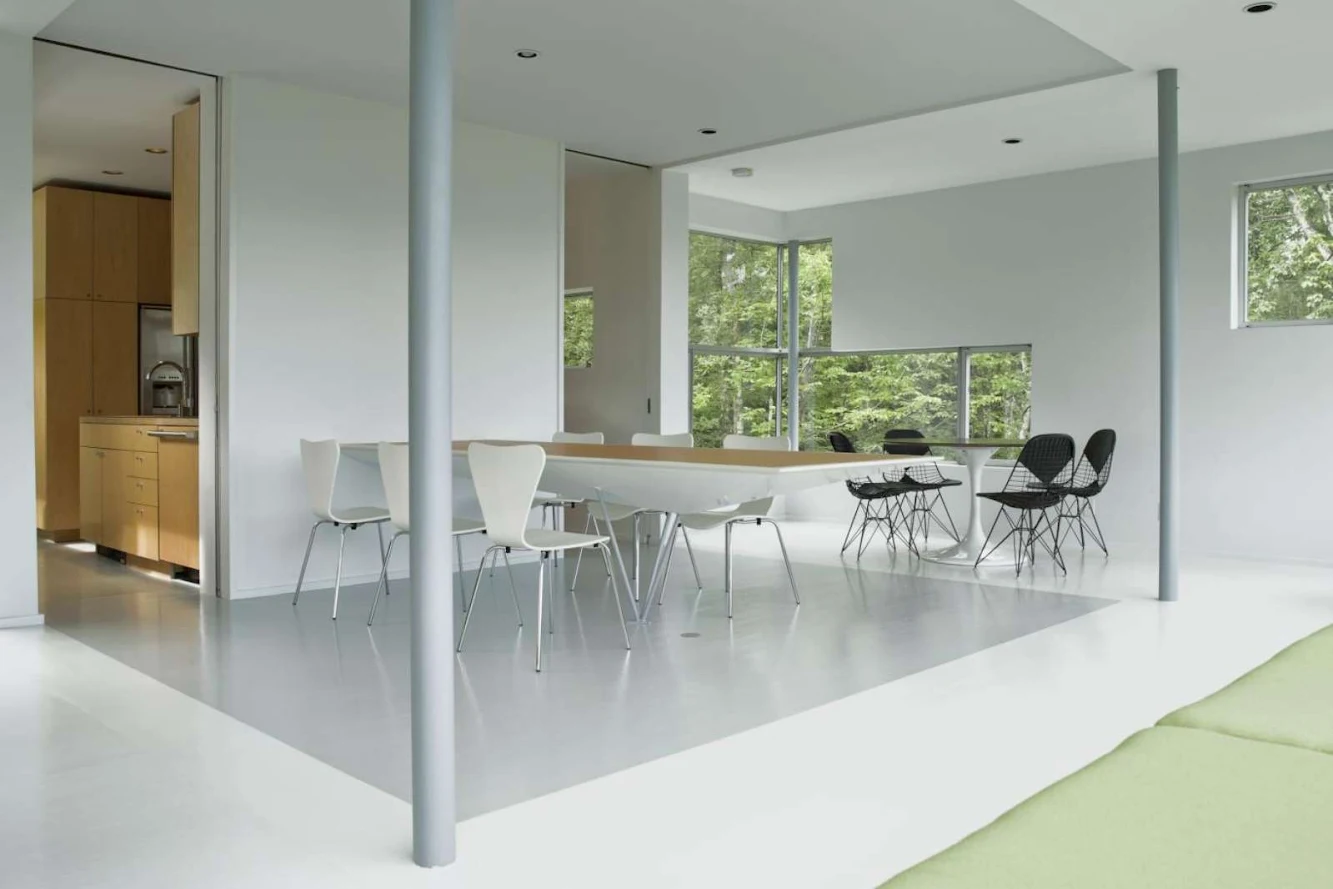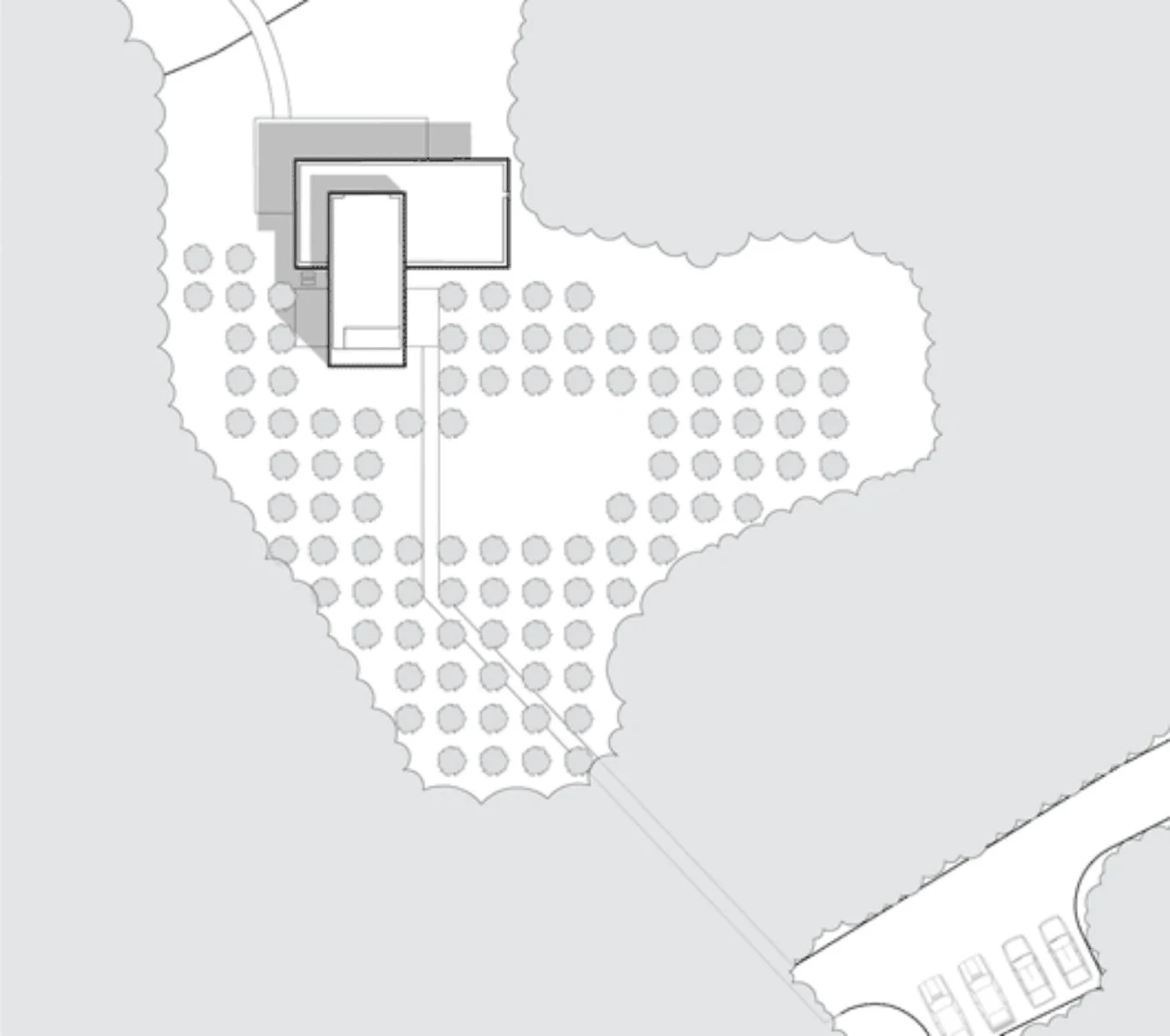
This small vacation house is designed as a stairway to the treetops. Keeping the footprint to a minimum so as not to disturb the wooded site, each of the first three floors has only one small bedroom and bath, each a tiny private suite.

The top floor, which contains the living spaces, spreads out from the tower like the surrounding forest canopy, providing views of the lake and mountains in the distance. An outdoor roof terrace deck above extends the living space above the treetops, offering a stunning lookout to the long view.

The glass-enclosed stair also highlights the procession from forest floor to treetop aerie, while the dark green, back-painted glass exterior camouflages the house by reflecting the surrounding woods, de-materialising its form. At dusk, mini lights dotting the cable rail of the stair mimic local fireflies sparkling in the woods as day turns to dark.

As a vacation home, the Tower House is used during a few weekends in the winter and most weekends in the summer. the design imperative was to develop a sustainable, energy efficient solution with minimal operating costs and maintenance for a house occupied part-time. the stacked north-facing bedrooms take advantage of light and views with floor to ceiling glass.

In order to optimise energy savings for heating and cooling in this part-time residence, a two part sustainable strategy was employed to reduce the heating footprint of the house in the winter and to avoid the need for air conditioning in the summer.

While the house is heated conventionally, by compressing and stacking all of the wet zones of the house into an insulated central core, much of the house can be "turned off" in the winter when not in use.

When not in use, only 700 square feet of the 2,545 square foot house is heated. by closing the building down to only the insulated core, there is a 49% reduction in energy use. in the summertime, the house feels comfortable without air conditioning.

Cool air is drawn in and through the house using the stack effect. South-facing glass throughout the stairwell creates a solar chimney and as the heated air rises, it is exhausted out the top, drawing in fresh air through the house from the cooler north side.






Location: Upstate Ny, Usa Architect: GLUCK+ Project Team: Peter L. Gluck, Thomas Gluck, David Hecht, Marisa Kolodny, A.B. Moburg-Davis Structural Engineer: Robert Silman Associates P.C. Mechanical Engineer: Rosini Engineering P.C. Façade: Bill Young Environmental Engineer: Ibc Engineering Lighting: Lux Populi Area: 2,545 sqft Year: 2012